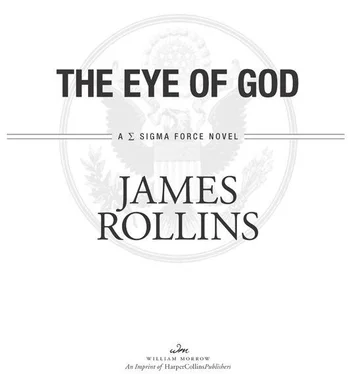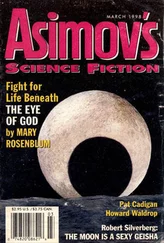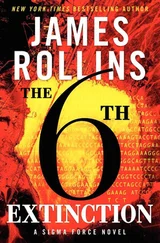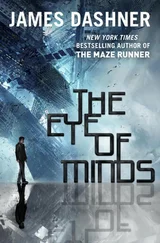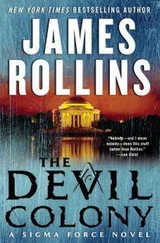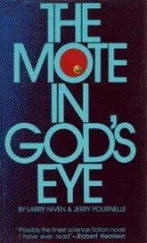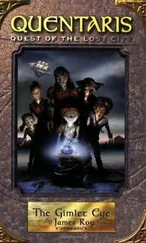Duncan had his pistol out. He shot two rounds into the plate glass, aiming away from any diners. With the glass weakened, he leaped and hit the window with his shoulder, shattering through it.
Glass scattered in a tinkling rain around him as he landed inside. With his next bound, he bowled into the two Italians, clotheslining them both to the ground.
He turned to see Monk dive headlong through the same hole—followed on his heels by a thunderous blast.
The entire wall of windows blew out, accompanied by a rain of rock, sand, and smoke. Monk shoulder-rolled amid the carnage across the restaurant floor. Duncan sheltered the two civilians.
Before the glass even stopped bouncing across tabletops and floor tiles, Duncan got his two charges up on their feet.
“Move it! Out the rear!”
The old man resisted, his arm reaching for a roller bag.
Duncan grabbed it versus arguing. Feeling like the most overpaid bellhop, he rushed the pair through the smoke toward the kitchen. He collected Monk along the way. The man bled from several lacerations, an imbedded shard of glass still poking out of his coat.
With Duncan’s ears ringing, his head pounding, he swore Monk said, “That could’ve gone better.”
They sped through the kitchen, dodging cooks crouched beside their stations, and out the back door. Once in the open, none of them slowed. They all knew where there were two suicide bombers, there might be more.
Fleeing the column of smoke at the beachfront, they reached a main drag through the business district. Duncan stopped a cab by stepping in front of it.
They all piled in. In the front seat, Monk, whose face was still dripping blood, ordered them to be taken to the airfield. The driver looked pale but nodded rapidly when Monk shoved a fistful of bills at him.
Only after they were speeding out of town did they relax. Duncan turned to the woman in the center of the backseat and discovered pretty caramel eyes—of course, they would have been even prettier if she wasn’t glaring at him.
“I knew we never should have left Rome.”
2:22 P.M.
She didn’t know what she was doing here.
Jada sat in the large cabin of the blue-gray Eurocopter EC175. Though she might not like this detour to Kazakhstan, she could not complain about the legroom. She had her legs up and sprawled across the neighboring seats. The cabin could easily hold a dozen or more passengers versus the five that would be making the overland flight to the Aral Sea. Duncan had explained earlier that they needed such a large bird in order to haul the long distance, as there was no convenient airfield for a plane to land out there.
It was that remote.
But at least I’m not totally disconnected from the world.
She sat with her laptop open, reviewing the latest data on Comet IKON. A glance out the tinted windows showed the tiny blaze of its tail, like a shining comma in the daytime sky. Apparently it was putting on quite a show on the opposite side of the world, where it was the middle of the night.
She stared at the video footage on the screen from Alaska.
A large meteor shower blazed through the aurora borealis, in winking streaks and silvery trails, flashing every few seconds, if not more. All of it was overseen by the sweep of the comet’s tail; the footage was distinct enough to see the split between its dust tail and gas tail. One huge meteor shot across the screen, accompanied by a shout of surprise by the amateur videographer. It looked like a lance of fire that shattered into a ball of fireworks.
She had also been in touch with the Space and Missile Systems Center via the encrypted satellite phone supplied to her by Director Crowe. She had the phone at her ear now—though there was no need for encryption on this call.
“Yes, Mom, I’m fine,” she said. “It’s very exciting here in California.”
She hated to lie to her mother, but Painter had been adamant.
“Are you watching the light show in the night sky?”
“Of course, I am.”
At least that wasn’t entirely a lie.
“I wish I could be there watching it with you, honey,” her mother said. “Like we used to do back when you were a little girl.”
Jada smiled at the memory of lying sprawled in the grass of the National Mall, shivering under a blanket, watching the Leonid or Perseid showers. It was her mother who had instilled in her a love of the stars, who had taught her that the annual meteor shows were named after the constellations that seemed to birth them: Leo and Perseus. Growing up in a world where life seemed small and hand-to-mouth, Jada was reminded by the stars of a greater universe, of larger possibilities.
Like a girl from Congress Heights becoming an astrophysicist.
“I wish I could be with you, too, Mom.” She checked the time. “Hey, you’d better get going if you’re going to make your morning shift at the Holiday Mart.”
“You’re right, you’re right . . . I should be going.”
Pride rang through the line, traveling halfway around the world to reach her.
“I love you, Mom.”
“I love you, too, honey.”
As the connection ended, Jada felt a twinge of sorrow, feeling suddenly selfish and guilty that she got to live this life.
Blinking back tears, she returned to her work. She rewound the meteor shower footage once again. Over at the SMC, they were still trying to determine if this showy display was simply a coincidence or if it had something to do with the passage of Comet IKON through the solar system.
She had texted with a tech buddy, learning the latest conjectures. The current belief was that the passage of the comet might have disturbed the Kuiper belt, a region of icy asteroids past the orbit of Neptune, drawing an entourage of rocks in its wake and splashing them across the earth. The Kuiper belt contained over thirty thousand asteroids larger than a hundred kilometers in diameter, along with being the home to many short-period comets like the famous Halley’s comet.
The most exciting news, though, was the growing belief that IKON came from the much more distant Oort cloud, a spherical cloud of debris that circled one-fifth of the way toward our closest star. It was home to long-period comets, those rare visitors, like Hale-Bopp, that traipsed by only once every forty-two hundred years.
The latest calculations suggested that the last time IKON passed through the inner solar system was twenty-eight hundred years ago, definitely an ancient visitor. If true, it was an exciting proposition, as objects out in the Oort cloud were untouched remnants of the original nebula from which the entire solar system formed, making IKON a blazing herald from that most distant time, potentially carrying with it the keys to the universe.
Including perhaps the mystery of dark energy.
A loud rumble shook the helicopter’s cabin, followed by a low roar. The rotors overhead began a slow sweep.
What . . . ?
She sat up straighter.
The copilot hopped out, came around, and opened the side door. The noise grew deafening.
The pilot leaned back, yelling to her, “Strap in! Just heard word! Got an order to prep for a fast takeoff!”
Her heart thudded harder as she snapped closed her laptop. She glanced out the open hatch as the copilot dashed about performing a final preflight check. In the distance, an angry column of black smoke climbed into the blue sky above the center of town.
Moments later, a taxi came racing into view, coming straight at them. She spotted Monk’s face in the front seat. But he and Duncan had left here in a black Mercedes SUV.
She clutched the edge of the door.
What is going on?
The taxi braked with a squeal, and doors popped open all around. She spotted Duncan climbing out the back. Out the other rear door came an older man in a light jacket and a black V-neck sweater, revealing the Roman collar of a priest. He was helped out by a young, petite woman with a pixie-bob of a haircut.
Читать дальше
